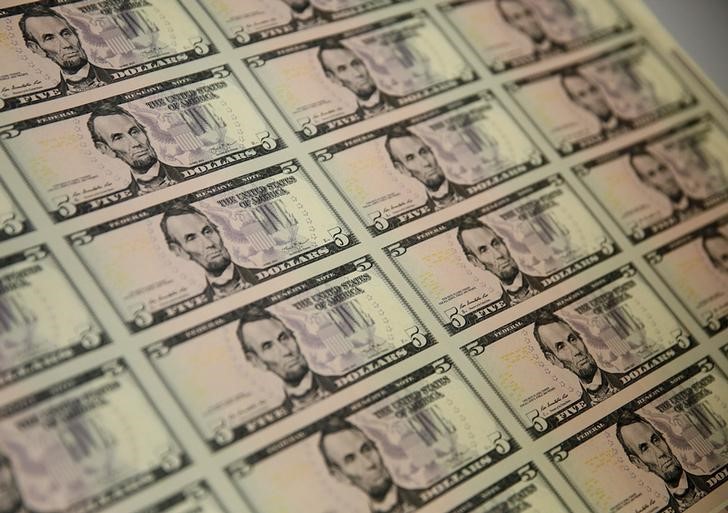Investing.com - The dollar extended losses against the other major currencies on Wednesday, after the release of downbeat U.S. housing data, while renewed optimism following Britain’s decision to leave the European Union continued to support market sentiment.
The National Association of Realtors said its pending home sales index fell by 3.7% last month, missing expectations for a decline of 1.1%. Pending home sales in April advanced 3.9%, whose figure was revised down from a previously reported gain of 5.1%.
The report came after the U.S. Commerce Department said that personal spending increased by 0.4% last month, matching expectations, while April’s number was revised up to a gain of 1.1% from a previously reported rise of 1.0% that had already been its largest increase in seven years.
Personal income, meanwhile, rose 0.2%, below forecasts for a 0.3% gain and after rising 0.5% a month earlier. April’s data was revised from an initial advance of 0.4%.
GBP/USD rallied 1.35% to 1.3526, off the 31-year low of 1.3122 set on Monday, a level not seen since 1985. The two-day selloff in sterling seen on Friday and Monday was the largest in recent history.
The pound came under broad selling pressure as fears that a Brexit could hit investment in the U.K. economy, threaten London's role as a global financial capital and usher in a period of slower global economic growth.
EU leaders were to continue to discuss the implications of Brexit at a summit in Brussels on Wednesday.
On Tuesday, EU leaders said there would be no special deals from former members of the trading bloc.
Earlier Wednesday, official data showed that U.K. net lending to individuals rose by £4.3 billion in May after an increase of £1.6 billion the previous month. Analysts had expected net lending to individuals to rise by £2.9 billion last month.
EUR/USD gained 0.42% to 1.1112, off Friday’s three-month trough of 1.0908.
USD/JPY slipped 0.18% to 102.59 after falling to lows of 99.15 on Friday, the weakest level since November 2013, while USD/CHF fell 0.22% to 0.9796.
Traders remained focused on whether Japan would take any action to weaken the yen if it continued to strengthen.
Japanese Prime Minister Shinzo Abe on Wednesday pledged to use all available policy tools to protect the economy from the fallout from Brexit.
The Australian and New Zealand dollars were stronger, with AUD/USD up 0.85% at 0.7448 and with NZD/USD jumping 1.14% to 0.7128.
Elsewhere, USD/CAD slid 0.30% to 1.2987.
The U.S. dollar index, which measures the greenback’s strength against a trade-weighted basket of six major currencies, was down 0.49% at 95.72, the lowest since June 24.
